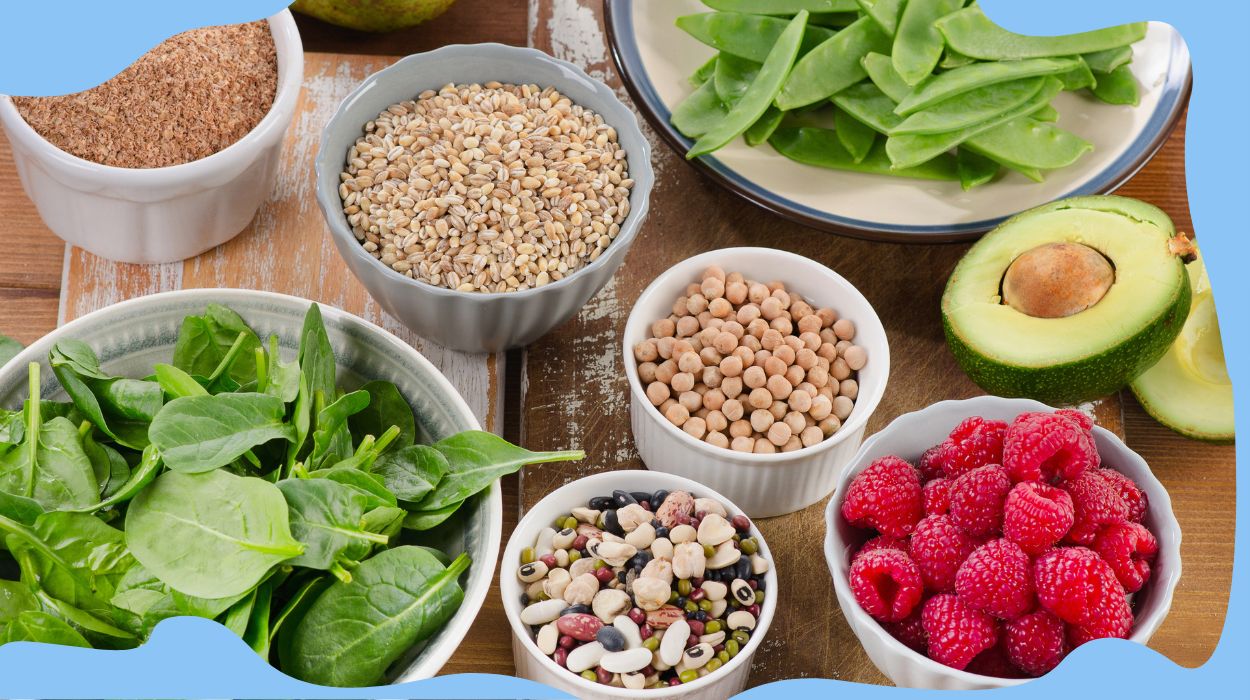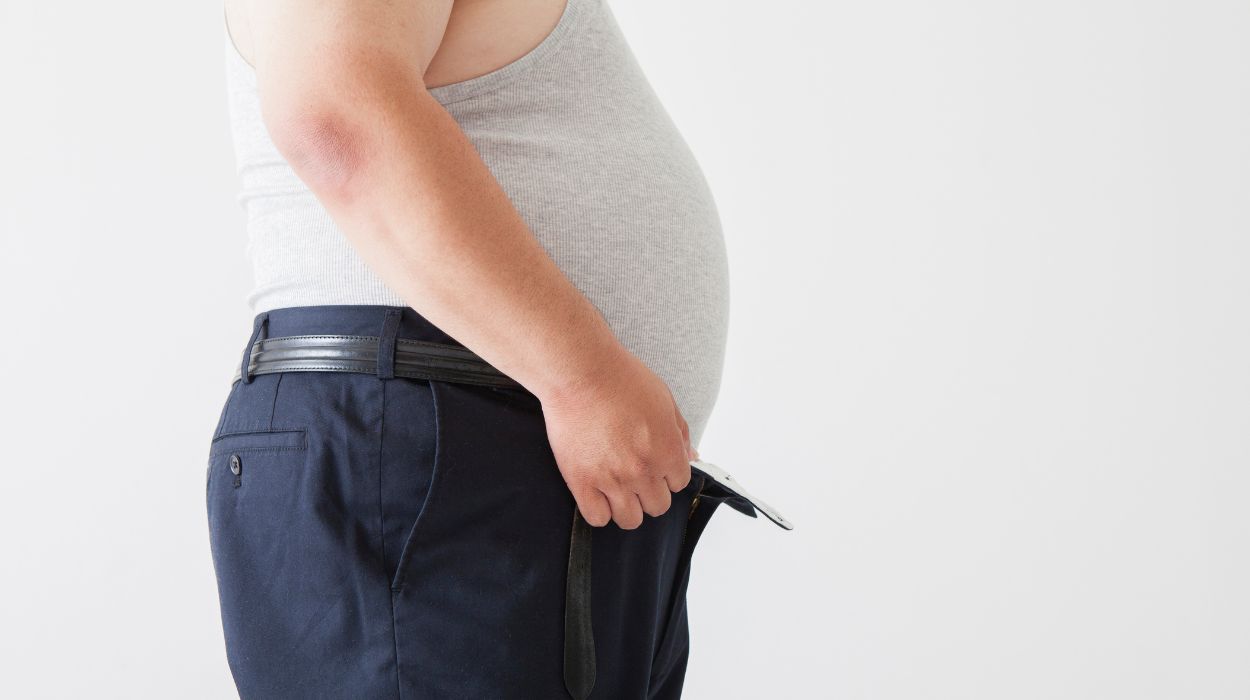How To Eat Less? 7 Ways Without Increasing Your Hunger

Going through the intricate balance between hunger, appetite, and nourishment can be daunting, especially if you are managing weight, coping with certain health conditions, or incorporating new dietary practices like intermittent fasting.
While understanding how to eat chia seeds or ‘how much water you should drink’ can help in a healthier lifestyle, managing hunger effectively requires comprehensive insight into the body’s needs and cravings.
Similarly, identifying the best fruit and vegetable supplements can be beneficial, but it’s crucial to consider their role within a balanced and holistic dietary approach.
This article aims to shed light on seven science-based strategies to help reduce hunger and appetite, equipping you with valuable tools to create a satisfying, healthy, and sustainable eating routine.
How To Eat Less?
This article provides science-backed strategies for managing hunger and eating less, including staying hydrated, consuming more fiber and protein, eating solid foods, practicing mindful eating, slowing down, and regular exercise. It explains how these approaches, along with a balanced diet and regular physical activity, contribute to weight loss and overall wellness.
7 Ways To Eat Less Without Increasing Your Hunger
Stay Hydrated

Drinking water has long been suggested as a way to help control hunger. Although based on stories and early animal studies[1], there is some truth to the idea that thirst and hunger can be confused.
Studies on humans provide interesting insights into how hydration can help curb our strong cravings. For example, in one study[2], people who drank two glasses of water right before a meal consumed 22% fewer calories than those who didn’t.
It’s believed that drinking around 17 ounces (500 mL)[3] of water can expand the stomach, sending signals of fullness to the brain. To make it work best, drinking water close to mealtime is recommended[4] so it quickly moves through the digestive system.
Eat Fiber-Rich Foods

A fiber-rich diet is key to transforming your relationship with food, helping you to maintain a sense of fullness[5]. In addition, fiber-rich meals are known to slow down the digestion process[6], ensuring a gradual release of nutrients into your system.
This gradual pace offers a prolonged sensation of fullness, granting you respite from the relentless cravings of eating. Additionally, food that is rich in fiber can regulate[7] the release of hunger hormones, effectively curbing your appetite.
Fibers can foster the production of short-chain fatty acids within your gut. These magical compounds act as allies, amplifying the feeling of fullness. In addition, recent studies[8] have unveiled the remarkable impact of satiety of viscous fiber-rich legumes, such as beans, peas, chickpeas, and lentils.
Whole grains have been shown to elevate the sensation of fullness by an astonishing 31% compared[9] to meals devoid of fibrous companions.
Eat More Protein
Protein imparts a greater sense of satiety[10] and influences hunger hormones, potentially decreasing caloric intake.
This principle is illustrated by a study involving 20 adults[11] with overweight. Those who opted for a breakfast enriched with protein-rich eggs rather than a cereal-based meal with lower protein content reported increased satisfaction and reduced hunger levels.
Furthermore, the merits of protein extend beyond animal-derived sources such as meats and eggs. Plant-based proteins, abundant in legumes and peas, also prove effective in stimulating satiety and regulating food intake.
General health guidelines recommend diets consisting of protein as 20-30% of the total calories consumed, which is equivalent to roughly 0.45-0.55 grams per pound (1.0 – 1.2 grams per kg) of body weight. However, certain studies advocate for a higher range of 0.55–0.73 grams per pound[12](1.2–1.6 grams per kg) of body weight.
Eat Solid Foods
Solid foods, particularly those with thicker textures, significantly affect satiety and reduce hunger. For example, a recent study[13] observed a significant difference in calorie intake between individuals who consumed a lunch of hard foods such as white rice and raw vegetables and those who ate softer options like risotto and boiled vegetables.
Those in the study with hard foods consumed fewer calories during the meal and subsequent meals. The unique properties of solid foods contribute to this effect. Their density and texture require more chewing, allowing ample time for the brain to receive fullness signals without overeating.
Conversely, softer foods can be quickly consumed, potentially leading to overeating. More evidence supports the idea that complex textures can reduce overall food intake.
Solid foods, with their intricate compositions, prolong the chewing process, keeping them in contact with our taste buds longer. This extended sensory experience enhances satiety, guiding us away from excessive eating.
Practice Mindful Eating
Deep within our brains lies a remarkable ability—an instinctual mechanism that signals hunger and fullness. But unfortunately, this primal communication often gets disrupted by our fast-paced and distracting world.
The solution? Enter the realm of mindful eating—a transformative strategy that calls for the elimination of distractions and that focuses on nourishing ourselves.
At its core, mindful eating is an approach that prioritizes our internal hunger and fullness cues, freeing us from the influence of external factors. It liberates us from the chains of advertisements and societal pressures, redirecting our attention inward to listen to our body’s subtle signals.
Practicing mindfulness[14] during meals can reduce cravings from fluctuating moods. This discovery holds great potential for individuals prone to emotional eating, impulsive behaviors, or relying on food as a source of reward.
By cultivating mindfulness, we can navigate these behavioral complexities that intertwine with our hunger and appetite. However, it’s important to recognize that mindful eating isn’t a cure-all.
Instead, it thrives when combined with other aspects of a holistic approach to well-being. A comprehensive regimen with a balanced diet, regular physical activity, and complementary therapies focusing on behavior together form the foundation for success.
Slowing Down
Research offers intriguing insights into this realm. For example, one study reveals a compelling[15] link between fast eating and larger bite sizes, leading to increased calorie intake. In contrast, another investigation uncovers a captivating truth—taking the time to digest each bite enhances our satisfaction, potentially protecting us from overindulgence.
Additionally, recent research suggests[16] that our eating rate may influence our hormonal balance. Hormones such as insulin and pancreatic polypeptide, which play a vital role in regulating hunger and satiety, respond to the pace at which we eat.
By embracing a slower rhythm, we create an environment that promotes healthier eating habits and empowers us to effectively control our appetite.
Exercise Regularly
Engaging in physical activities[17] is theorized to diminish the activation of neural pathways connected to food cravings. This could decrease the inclination towards calorie-dense foods and enhance the appeal of low-calorie alternatives.
Moreover, physical activities also play a critical role in reducing the concentration of hormones that induce hunger while concurrently amplifying sensations of satiety.
Numerous investigations have demonstrated that aerobic and resistance training exercises are on par in their capacity to modify hormone levels and determine meal portions post-exercise.
However, studies also indicate[18] a pronounced impact on appetite after high-intensity workouts compared to lower-intensity exercises.
Incorporating physical activities into one’s lifestyle tends to exert an overall positive influence on appetite for most individuals. Furthermore, it is vital to acknowledge that the response to physical activity can vary greatly between individuals.
To put it simply, there’s no universal outcome to exercise for weight loss for everyone. However, given the numerous health benefits that physical activity offers, it is highly recommended to embed enjoyable forms of movement into your daily life.
Conclusion
Adopting a healthy diet and mindful eating practices can be a significant step towards achieving one’s weight loss goals. By paying attention to how much food we consume during each meal and choosing to eat slowly, we may increase our feelings of satisfaction and satiety, control our portions, and avoid overeating.
These strategies along with regular exercise fosters a culture of healthy eating that doesn’t just support weight loss, but also contributes to overall wellness. As we make these changes, we should be mindful that weight loss is a journey, and it requires patience and consistency.
Ultimately, our goal should be to create a sustainable balance between enjoying our entire meal and maintaining a healthier lifestyle.
Frequently Asked Questions
Protein increases feelings of fullness, lowers hunger hormone levels, and can help you eat less at your next meal.
Yes, high-fiber foods slow digestion, increase satiety, and produce short-chain fatty acids that promote fullness.
Drinking water before a meal can make you feel fuller and reduce calorie intake. However, it should not replace a meal.
Research suggests that solid foods and those with higher viscosity can significantly decrease hunger compared to thin or liquid foods.
Mindful eating helps you tune into internal cues, weakens mood-related cravings, and is beneficial for emotional and impulsive eating patterns.
Eating may help curb overeating and influence hormones in hunger and satiety cues, such as insulin and pancreatic polypeptide.
Resources
- Anne-Kathrin Eiselt, Chen, S.-S., Chen, J.K., Arnold, J., Kim, T., Marius Pachitariu and Sternson, S.M. (2021). Hunger or thirst state uncertainty is resolved by outcome evaluation in medial prefrontal cortex to guide decision-making. [online] 24(7), pp.907–912. doi:https://doi.org/10.1038/s41593-021-00850-4.
- Johns Hopkins University (2020). Yes, drinking more water may help you lose weight. [online] The Hub. Available at: https://hub.jhu.edu/at-work/2020/01/15/focus-on-wellness-drinking-more-water/
- Corney, R.A., Sunderland, C. and James, L.J. (2015). Immediate pre-meal water ingestion decreases voluntary food intake in lean young males. [online] 55(2), pp.815–819. doi:https://doi.org/10.1007/s00394-015-0903-4.
- Carroll, H.A., Templeman, I., Chen, Y.-C., Edinburgh, R.M., Burch, E.K., Jewitt, J.T., Povey, G., Robinson, T.P., Dooley, W.C., Buckley, C., Rogers, P., Gallo, W., Melander, O., Thompson, D., James, L.J., Johnson, L. and Betts, J.A. (2019). Hydration status affects thirst and salt preference but not energy intake or postprandial ghrelin in healthy adults: A randomised crossover trial. [online] 212, pp.112725–112725. doi:https://doi.org/10.1016/j.physbeh.2019.112725.
- Ygor Parladore Silva, Bernardi, A. and Rudimar Luiz Frozza (2020). The Role of Short-Chain Fatty Acids From Gut Microbiota in Gut-Brain Communication. [online] 11. doi:https://doi.org/10.3389/fendo.2020.00025.
- Valentine Yanchou Njike, Smith, T.M., Omree Shuval, Kerem Shuval, Edshteyn, I., Kalantari, V. and Yaroch, A.L. (2016). Snack Food, Satiety, and Weight. [online] 7(5), pp.866–878. doi:https://doi.org/10.3945/an.115.009340.
- Chang Wook Ahn, Jae Hyun Bae and Young Min Cho (2019). Premeal Consumption of a Protein-Enriched, Dietary Fiber-Fortified Bar Decreases Total Energy Intake in Healthy Individuals. [online] doi:https://doi.org/10.4093/dmj.2018.0202.
- Siti Fatimah Salleh, Adli, A., Mohd Nizam Zahary, Naresh Bhaskar Raj and Abbe (2019). Unravelling the Effects of Soluble Dietary Fibre Supplementation on Energy Intake and Perceived Satiety in Healthy Adults: Evidence from Systematic Review and Meta-Analysis of Randomised-Controlled Trials. [online] 8(1), pp.15–15. doi:https://doi.org/10.3390/foods8010015.
- Li, S., Cyril W.C. Kendall, Russell, Jayalath, V.H., Cozma, A.I., Ha, V., Arash Mirrahimi, Chiavaroli, L., Livia, Sonia Blanco Mejia, Raz, I., Beyene, J., David J.A. Jenkins and Sievenpiper, J.L. (2014). Dietary pulses, satiety and food intake: A systematic review and meta‐analysis of acute feeding trials. [online] 22(8), pp.1773–1780. doi:https://doi.org/10.1002/oby.20782.
- Sharafi, M., Nima Alamdari, Wilson, M.T., Leidy, H.J. and Glynn, E.L. (2018). Effect of a High-Protein, High-Fiber Beverage Preload on Subjective Appetite Ratings and Subsequent Ad Libitum Energy Intake in Overweight Men and Women: A Randomized, Double-Blind Placebo-Controlled, Crossover Study. [online] 2(6), pp.nzy022–nzy022. doi:https://doi.org/10.1093/cdn/nzy022.
- Bayham, B.E., Greenway, F.L., Johnson, W.D. and Dhurandhar, N.V. (2014). A randomized trial to manipulate the quality instead of quantity of dietary proteins to influence the markers of satiety. [online] 28(4), pp.547–552. doi:https://doi.org/10.1016/j.jdiacomp.2014.02.002.
- Thea Toft Hansen, Astrup, A. and Anders Sjödin (2021). Are Dietary Proteins the Key to Successful Body Weight Management? A Systematic Review and Meta-Analysis of Studies Assessing Body Weight Outcomes after Interventions with Increased Dietary Protein. [online] 13(9), pp.3193–3193. doi:https://doi.org/10.3390/nu13093193.
- Bolhuis, D.P., Forde, C.G., Cheng, Y., Xu, H., Martin, N. and C. de Graaf (2014). Slow Food: Sustained Impact of Harder Foods on the Reduction in Energy Intake over the Course of the Day. [online] 9(4), pp.e93370–e93370. doi:https://doi.org/10.1371/journal.pone.0093370.
- The Nutrition Source. (2020). Mindful Eating. [online] Available at: https://www.hsph.harvard.edu/nutritionsource/mindful-eating/
- Shah, M., Copeland, J.L., Dart, L., Adams-Huet, B., James, A. and Rhea, D. (2014). Slower Eating Speed Lowers Energy Intake in Normal-Weight but not Overweight/Obese Subjects. [online] 114(3), pp.393–402. doi:https://doi.org/10.1016/j.jand.2013.11.002.
- Lasschuijt, M.P., Mars, M., C. de Graaf and Paul A.M. Smeets (2020). How oro-sensory exposure and eating rate affect satiation and associated endocrine responses—a randomized trial. [online] 111(6), pp.1137–1149. doi:https://doi.org/10.1093/ajcn/nqaa067.
- McNeil, J., Cadieux, S., Finlayson, G.D., Blundell, J.E. and Doucet, É. (2015). The effects of a single bout of aerobic or resistance exercise on food reward. [online] 84, pp.264–270. doi:https://doi.org/10.1016/j.appet.2014.10.018.
- Dorling, J.L., Broom, D., Burns, S.A., Clayton, D.A., Deighton, K., James, L.J., King, J.A., Miyashita, M., Thackray, A.E., Batterham, R.L. and Stensel, D.J. (2018). Acute and Chronic Effects of Exercise on Appetite, Energy Intake, and Appetite-Related Hormones: The Modulating Effect of Adiposity, Sex, and Habitual Physical Activity. [online] 10(9), pp.1140–1140. doi:https://doi.org/10.3390/nu10091140.
More from Healthy Eating
-

How To Eat Less? 7 Ways Without Increasing Your Hunger
July 13, 2023
Going through the intricate balance between hunger, appetite, and nourishment can be daunting, especially if you are managing weight, coping with…Read more




